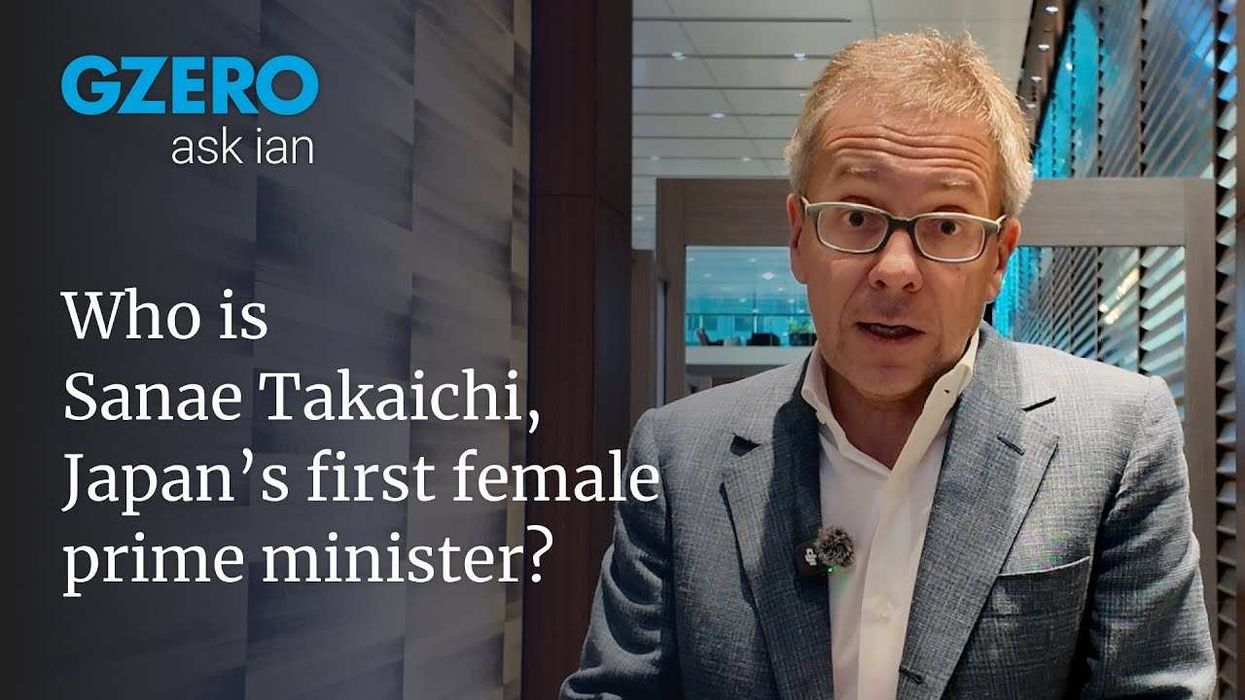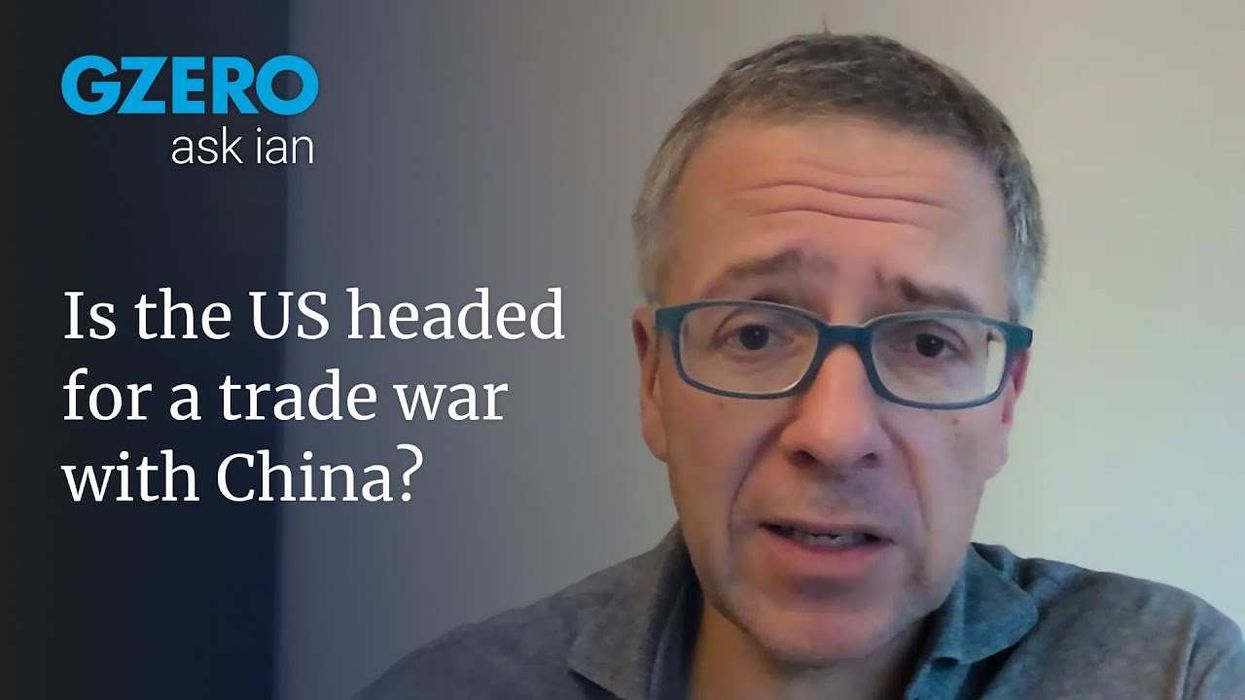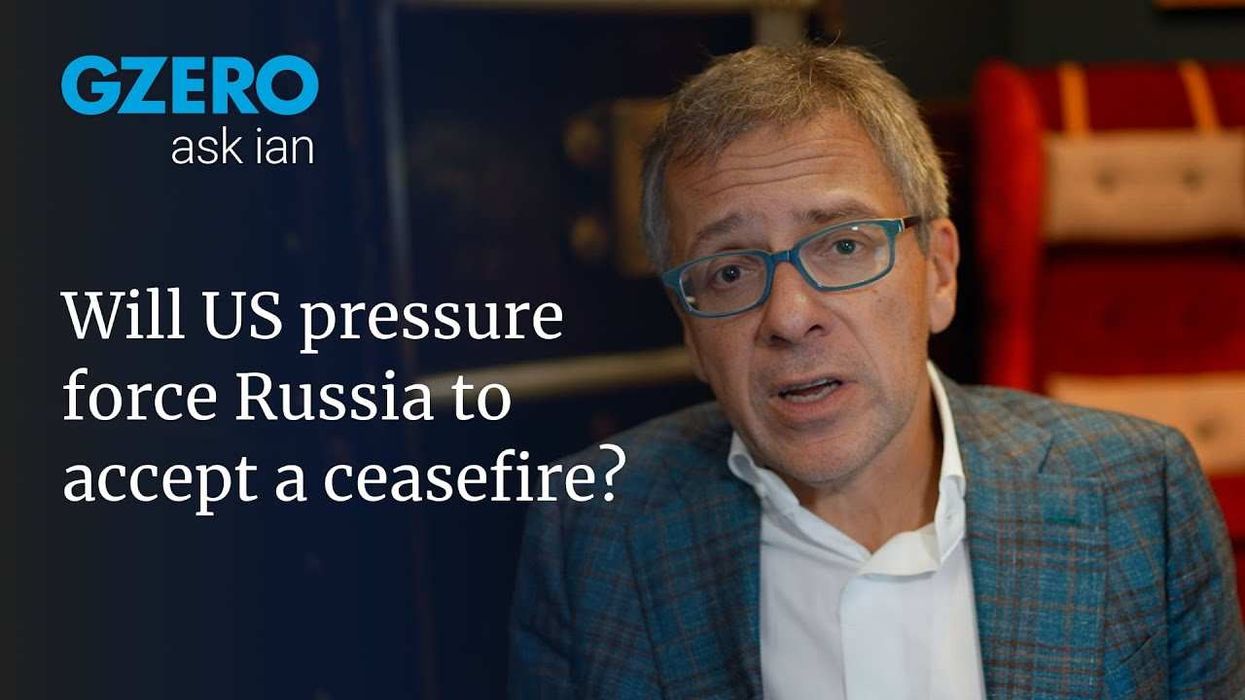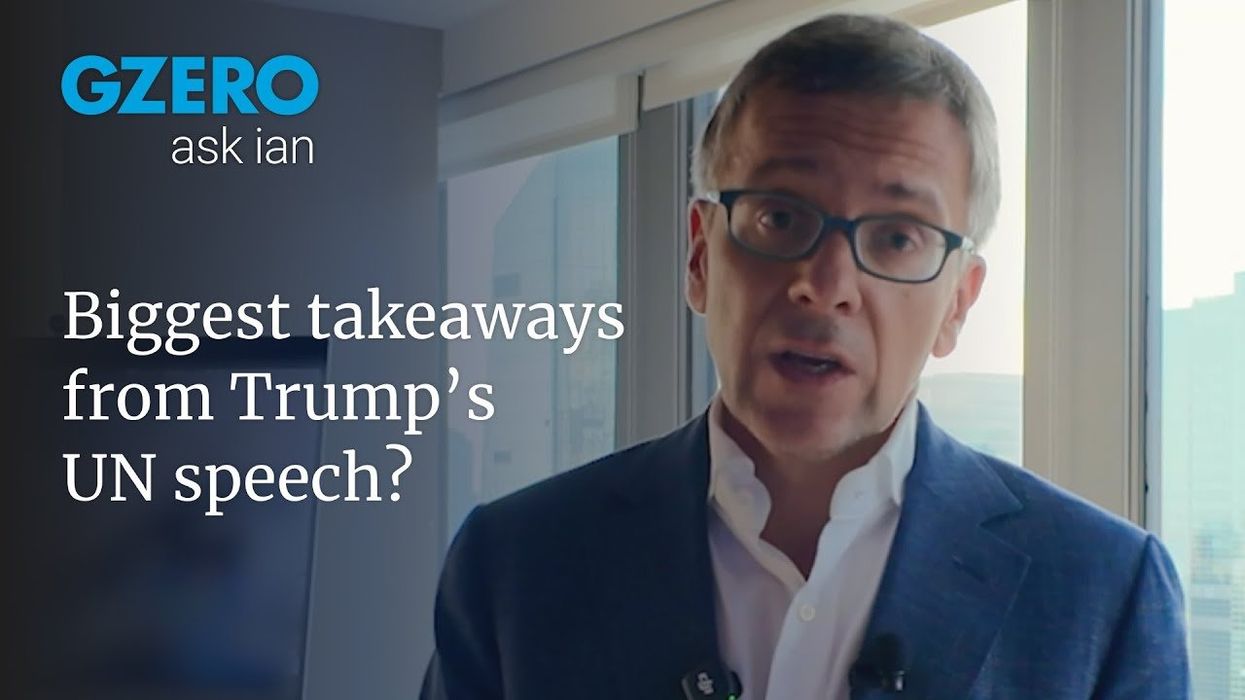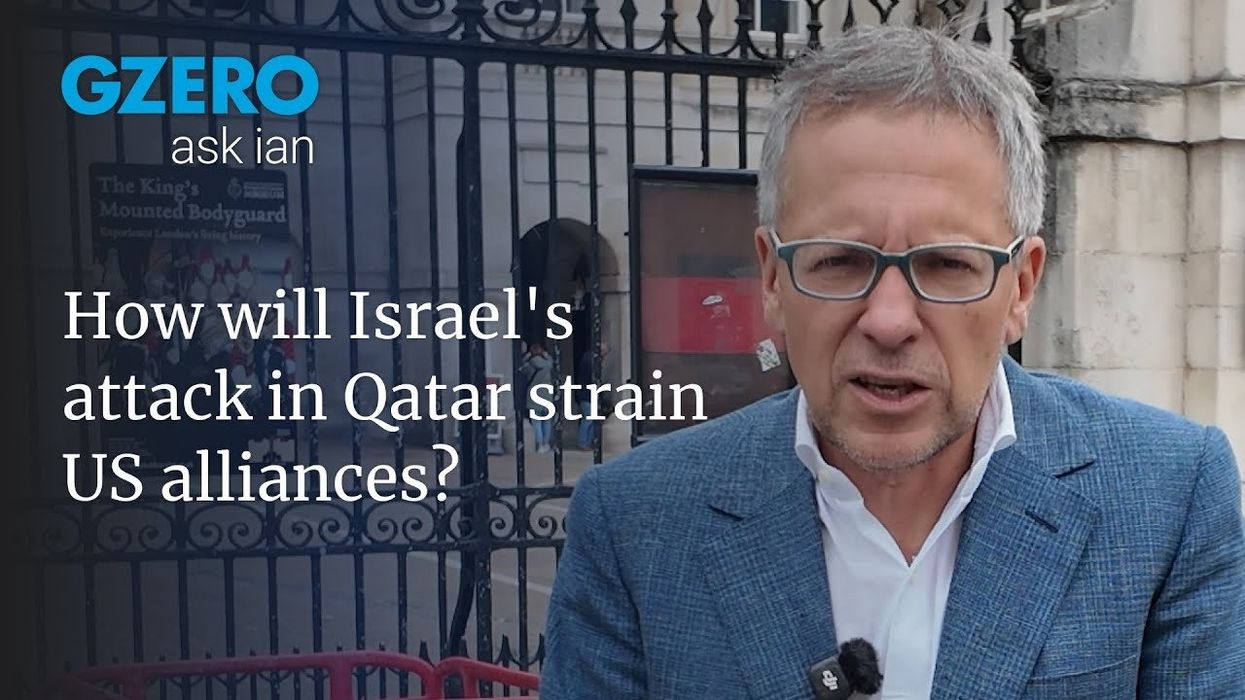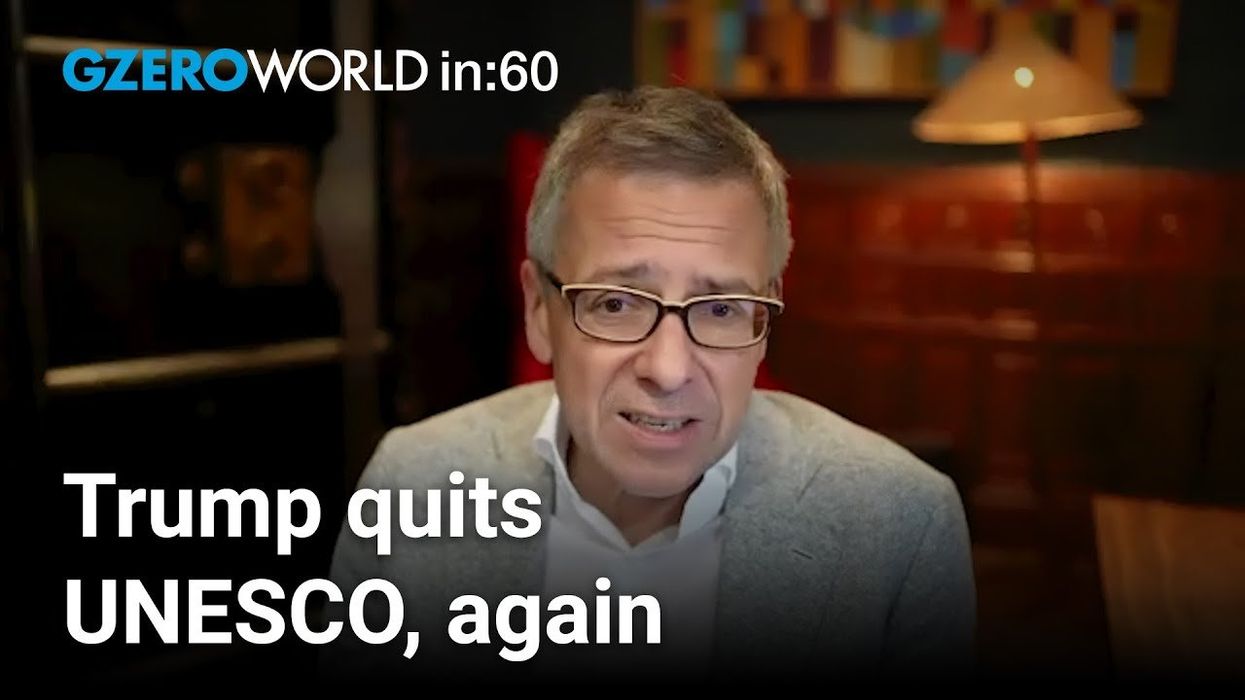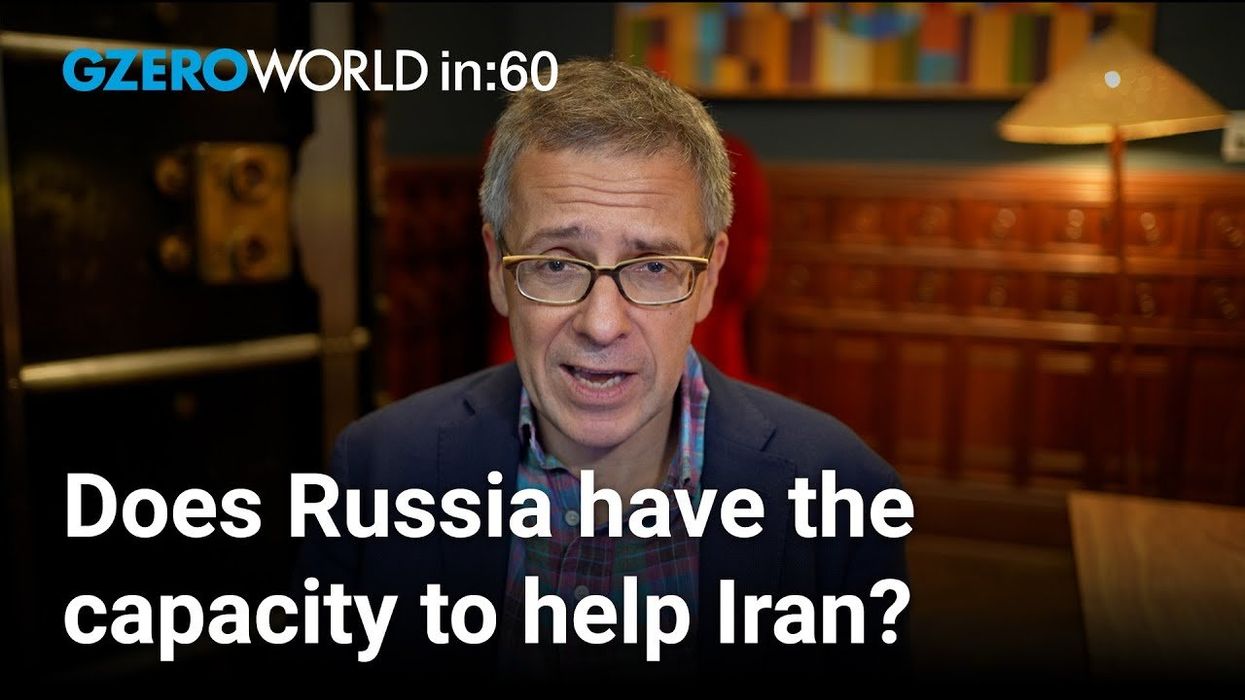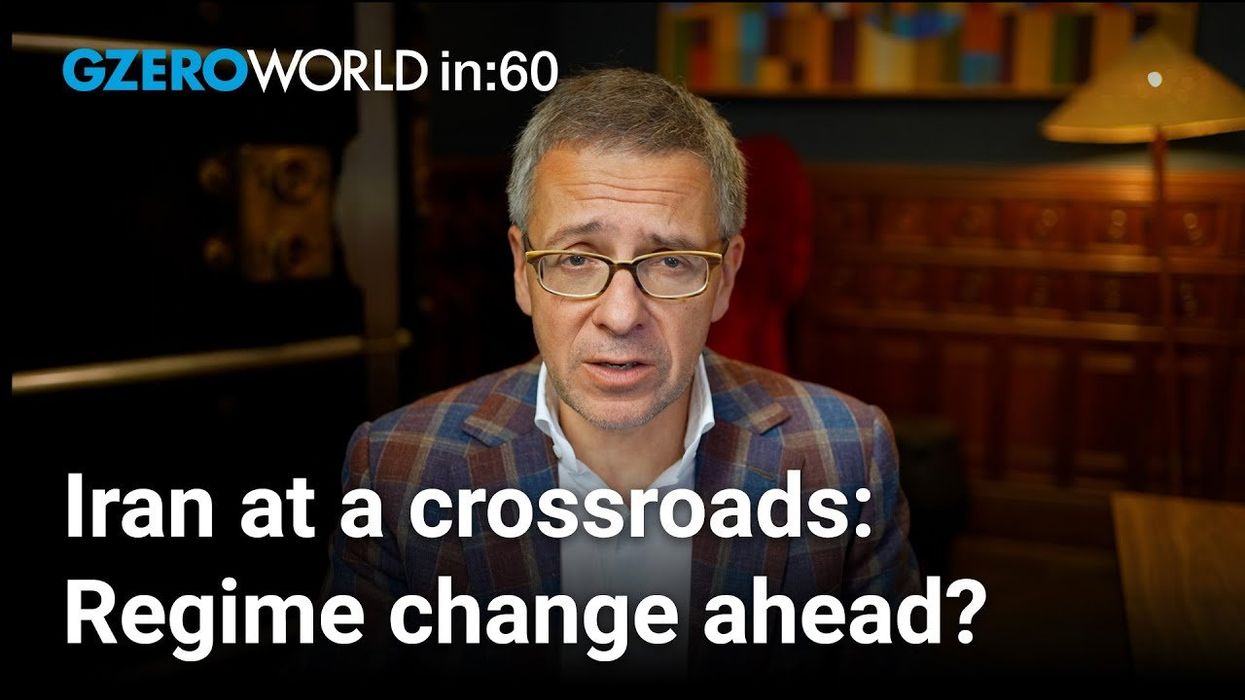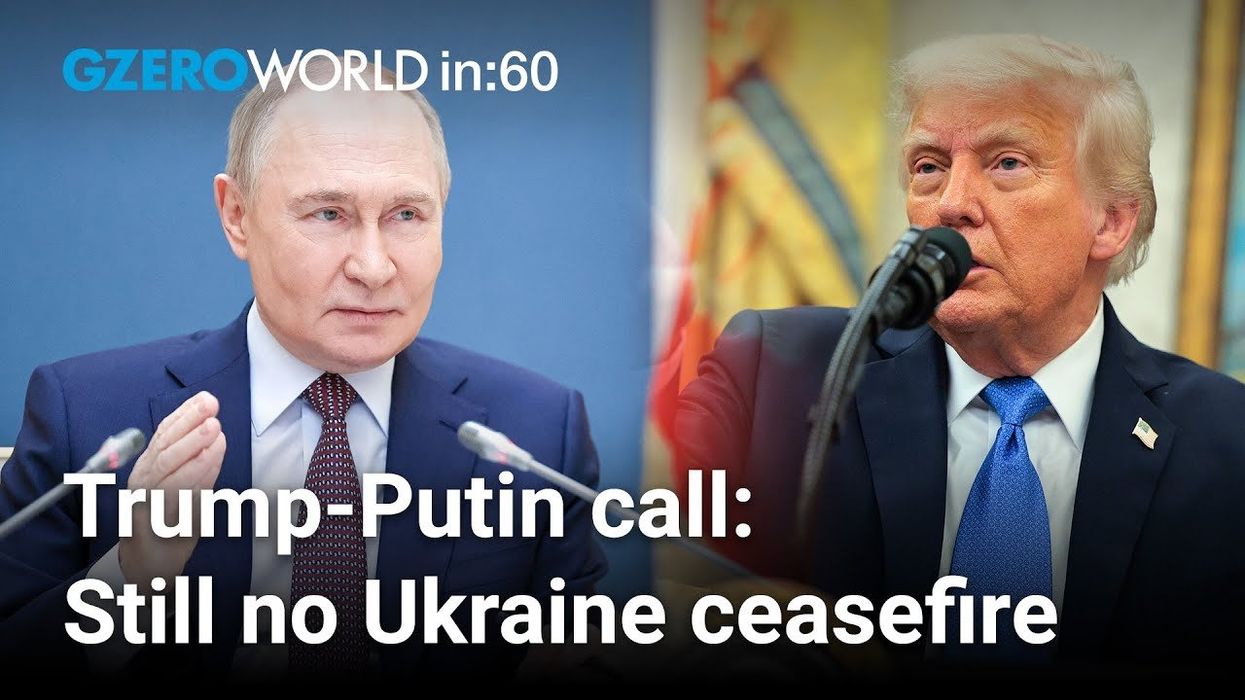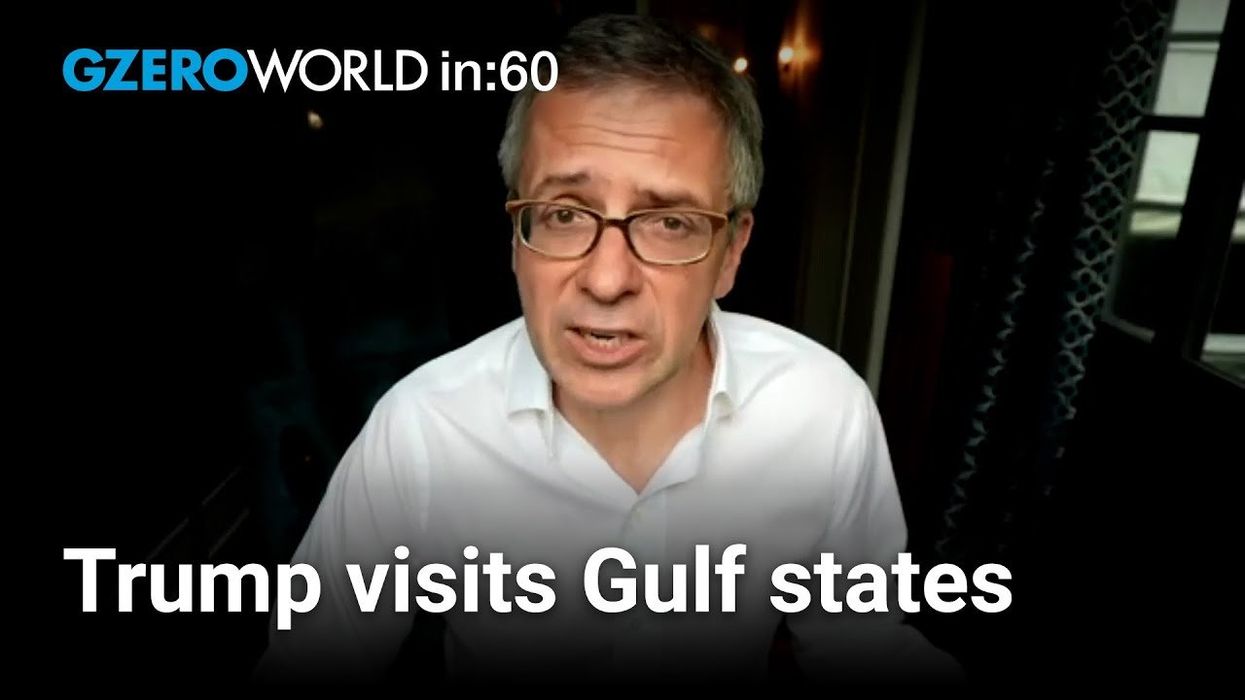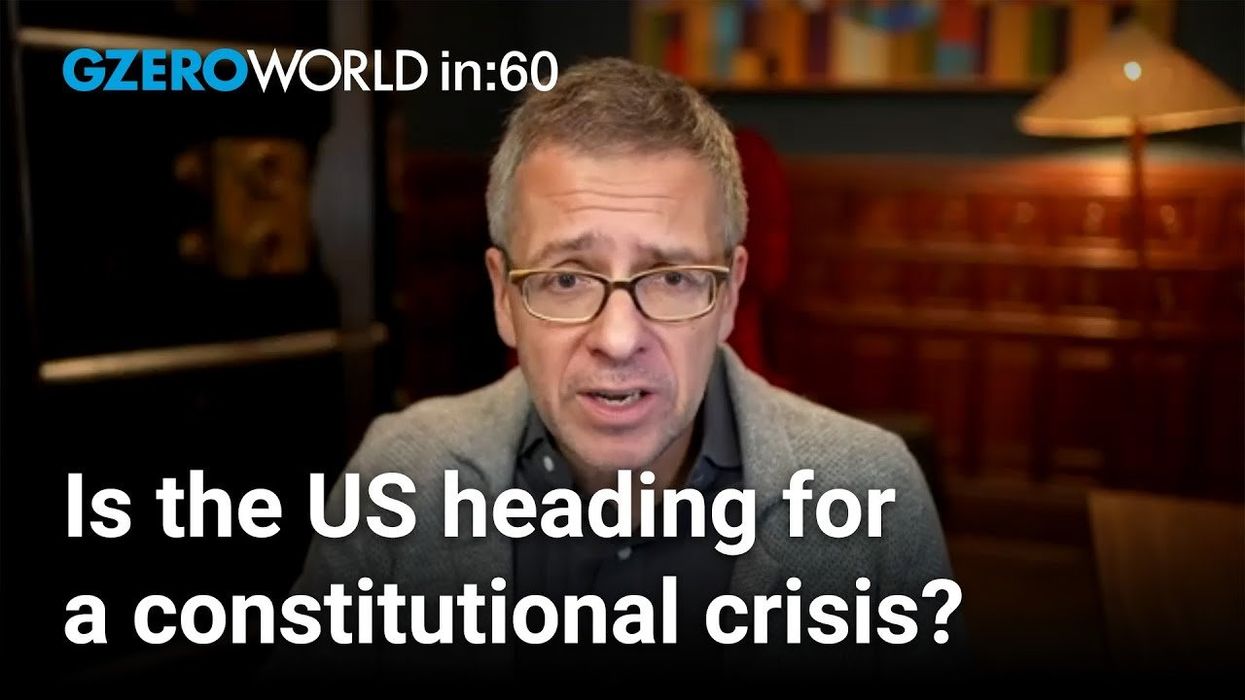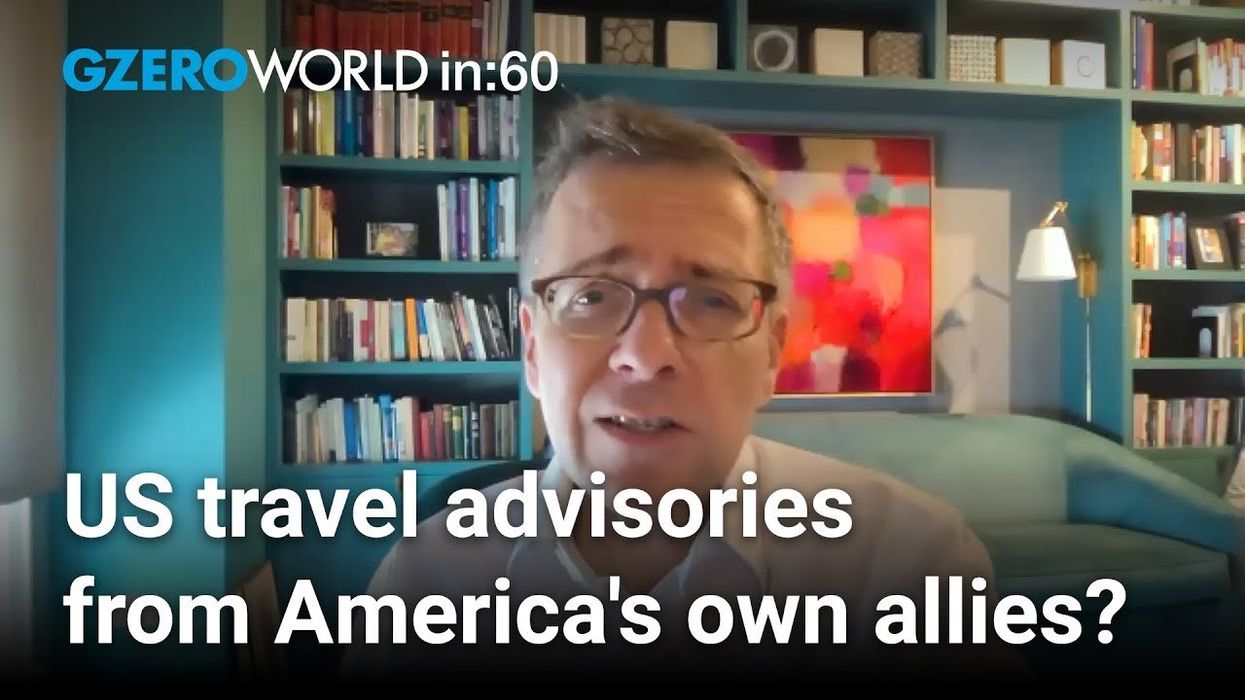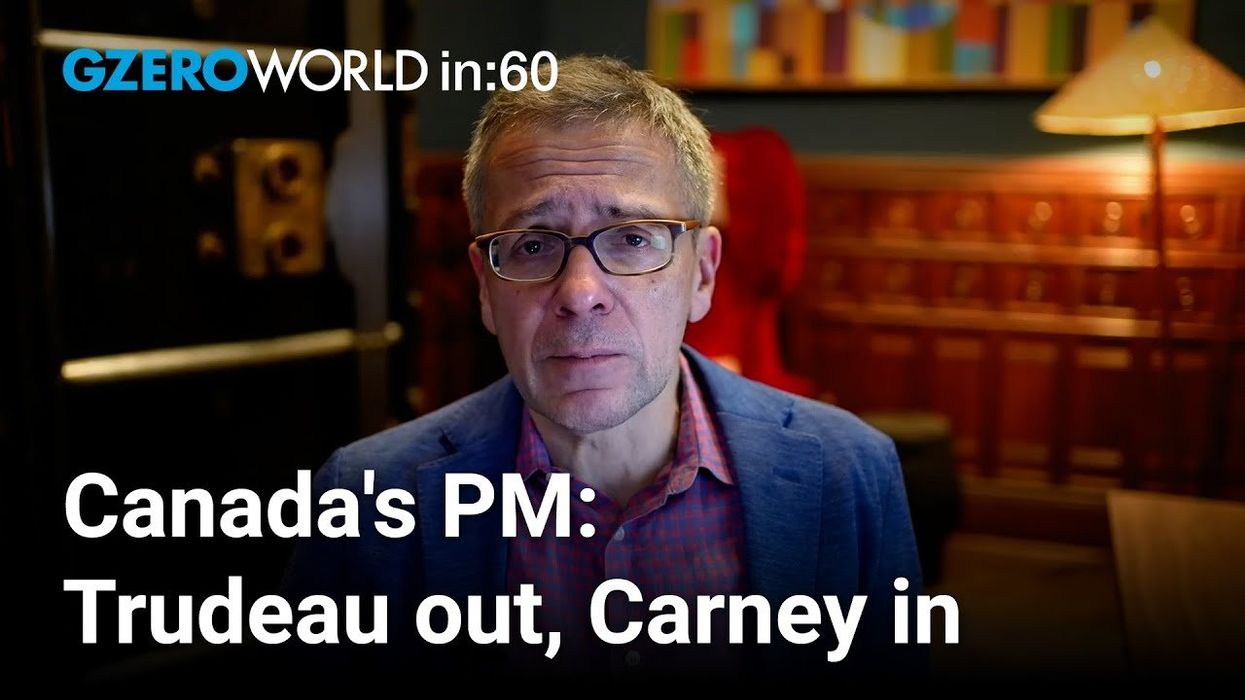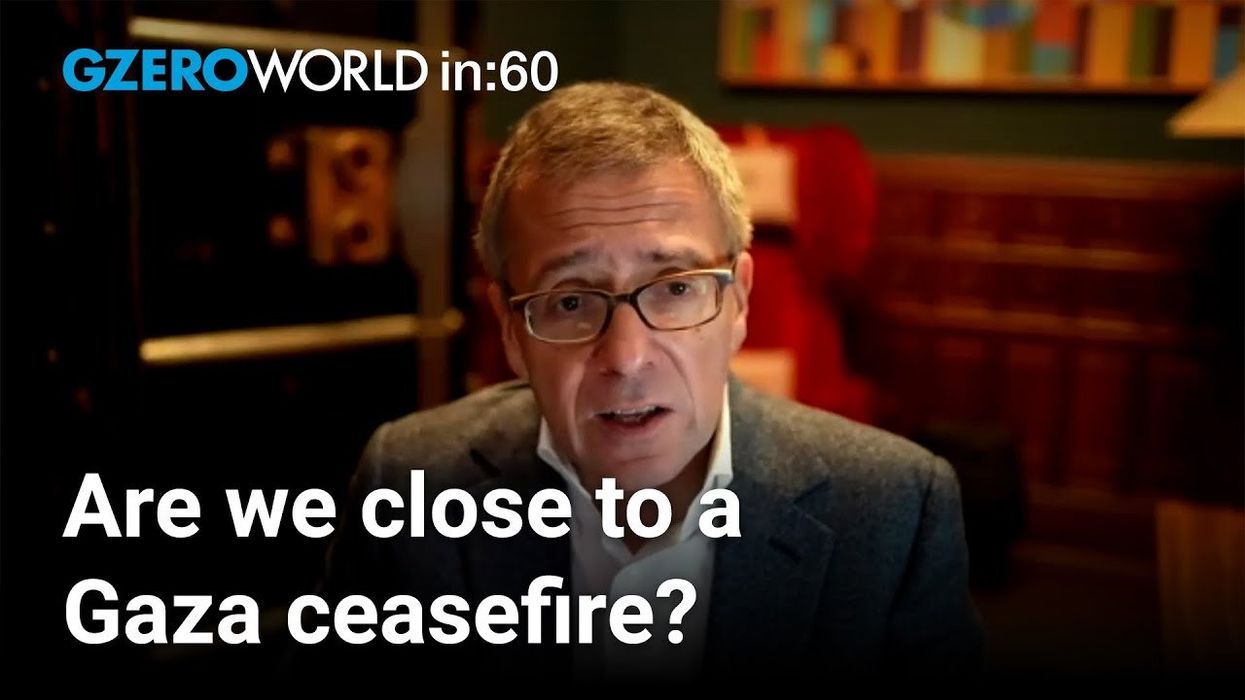VIDEOSGZERO World with Ian BremmerQuick TakePUPPET REGIMEIan ExplainsGZERO ReportsAsk IanGlobal Stage
Site Navigation
Search
Human content,
AI powered search.
Latest Stories
Sign up for GZERO Daily.
Get our latest updates and insights delivered to your inbox.
Global Stage: Live from Munich
WATCH RECORDING
Ian Bremmer shares his insights on global politics this week with a look at Afghanistan post-US withdrawal, how ISIS-K will complicate a Taliban-led Afghanistan, and EU travel recommendations.
What are your thoughts now that America's 20-year war in Afghanistan has officially ended?
Ongoing, it means much less coverage of Afghanistan in American media, something certainly President Biden is happy to hear and see. In part, we're going to continue to watch what happens with the couple of hundred Americans that are still on the ground. There is every intention to get them out, but I wouldn't say there is yet a plan.
And that is going to require a coordination of reliance with the Taliban government that is hardly experienced and hardly trustworthy. And then finally, the ongoing question of how the United States deals with ISIS-K, other organizations on the ground that are looking to kill Americans if they can. The war on terror is certainly not over, even though the war in Afghanistan for American soldiers is done. Those are a few views. I could go on for hours on this.
Who is ISIS-K? How do they complicate a Taliban-led Afghanistan?
Well, they are Sunni extremists with a mandate, if you will, to attack the Taliban, a mandate to attack the West. I think what's going to happen is you're going to have a Taliban government with an ISIS-K insurgency. The Pentagon is saying they estimate some 5,000 ISIS-K fighters on the ground right now. Certainly, the US still has capacity in terms of signals intelligence, satellite imagery, and some level of intel in conversations on the ground with Taliban that would allow the Americans to continue to engage in a fight against them, but that's very different from having boots on the ground and an embassy, which has now closed. So, it's going to be a challenge, much bigger a problem for the Afghans, of course, then for the Americans, a bigger problem for the Europeans than for the Americans, part of the reason why Biden administration wanted to end the war.
Why is the EU proposing travel restrictions on US visitors again?
Well, they're not imposing. They're not imposing travel restrictions. They're making recommendations with individual European countries now can choose to implement or not. And by the way, even if they implement, they can still have exceptions for things like, are you vaccinated? Do you have a negative test? The issue here is that when you see headlines about, "You may have to quarantine, you may not come in," a lot of people that are making travel to Europe that is not essential are going to kick those trips back. They're going to say, "Ah, it's too difficult. It's too uncertain." So, there will be an economic impact on Europe as a consequence of that, but clearly the big issue is delta variant and all sorts of cases, over a hundred thousand a day now in the United States, averaging just over a thousand deaths a day, not something anyone wanted to see in the United States or anywhere in the world. And it means that you're still having all of these stop, start, stop, start, and getting the economy and getting life back to usual.
Keep reading...Show less
More from ask ian
Trump–Zelensky meeting at Mar-a-Lago
December 29, 2025
Is the US heading toward military strikes in Venezuela?
December 22, 2025
Trump, loyalty, and the limits of accountability
December 16, 2025
Notre Dame, politics, and playing by their own rules
December 08, 2025
Trump threatens regime change in Venezuela
December 02, 2025
Is Trump’s trade strategy backfiring abroad?
November 25, 2025
Ian stands in line for a bagel, the internet melts down
November 21, 2025
Could Trump have handled the Epstein issue any worse?
November 17, 2025
Democrats divided over government shutdown deal
November 11, 2025
Zohran Mamdani and America's political future
November 04, 2025
Trump, Xi, and the new US–China standoff
October 14, 2025
US-China AI race: Dueling strategies and potential risks
October 07, 2025
Trump shifts on Russia: From carrots to sticks in Ukraine war
September 30, 2025
Trump’s UN speech: Sovereignty, security, and ending wars
September 23, 2025
Israel attacks and targets Hamas leadership in Qatar
September 10, 2025
US strike on vessel from Venezuela
September 03, 2025
Trump pulls US out of UNESCO, again
July 22, 2025
Trump announces new plan to arm Ukraine
July 15, 2025
Are NATO allies aligned on Iran?
June 24, 2025
Will Iran’s regime survive?
June 18, 2025
Trump-Musk rift over Trump's "big, beautiful bill"
June 04, 2025
What is Trump after in his latest Gulf states tour?
May 13, 2025
Why Mark Carney’s victory won’t heal the US-Canada rift
April 29, 2025
Trump tariff is starting a US-China trade war
April 08, 2025
What if Japan & South Korea sided with China on US tariffs?
April 01, 2025
US travel warnings issued by its closest allies
March 25, 2025
US-Canada trade war helps Mark Carney's election prospects
March 11, 2025
Why Trump won’t break the Putin-Xi alliance
March 04, 2025
Will Trump & Musk punish Brazil over Bolsonaro indictment?
February 19, 2025
Putin trolls Europe about "the master" Trump
February 04, 2025
DeepSeek puts US-China relations on edge
January 30, 2025
Gaza ceasefire likely as Biden and Trump both push
January 14, 2025
Meta scraps fact-checking program: What next?
January 07, 2025
GZERO Series
GZERO Daily: our free newsletter about global politics
Keep up with what’s going on around the world - and why it matters.












